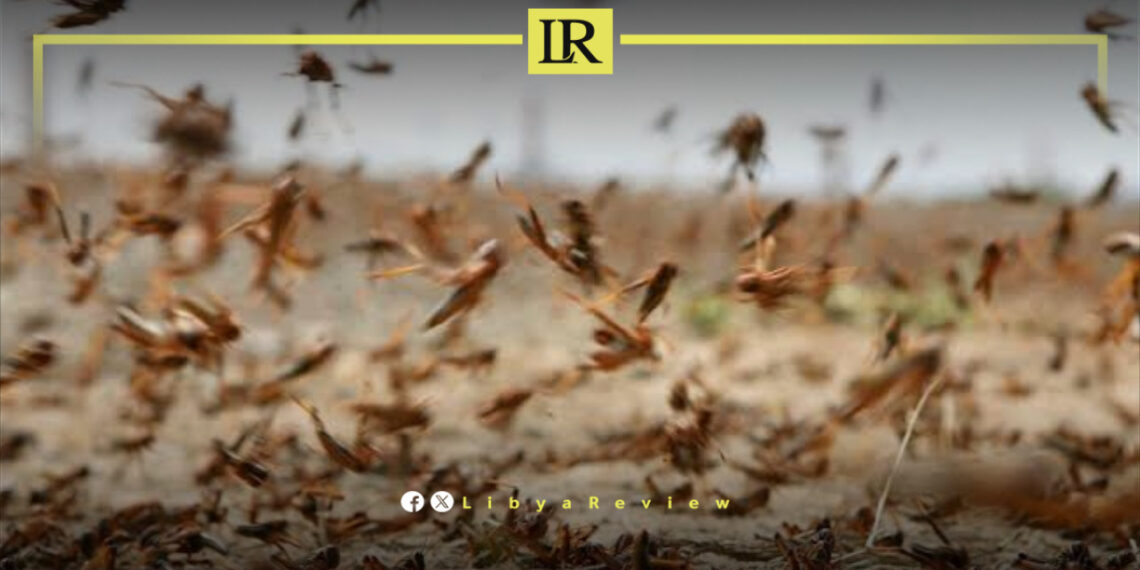Southern Libya is facing a severe agricultural crisis as enormous swarms of desert locusts sweep across the region, destroying crops and threatening food security.
Farmers report widespread devastation to farmlands, while authorities struggle to mount an effective response due to a lack of pesticides, spraying equipment, and modern control techniques.
The Libyan Center for Desert Research and Development has warned that local farms are under serious threat, with the government relying on outdated and insufficient methods to combat the infestation.
The scale of the disaster has exceeded available resources, leaving large areas of farmland vulnerable to complete destruction.
Hussein Al-Breiki, spokesperson for the National Locust Control Committee, issued a dire warning that the locusts have entered the breeding phase, which could lead to a rapid population explosion.
Without swift and large-scale intervention, the infestation could spiral into an environmental and food security catastrophe. Efforts to contain the outbreak are hindered by a shortage of insecticides, spraying machines, and field teams, significantly limiting the country’s ability to prevent further spread.
In response, Major General Jamal Al-Amami, head of the Southern Region Reorganization Committee, held an emergency meeting in Traghen to outline an urgent action plan.
A crisis management team has been formed to coordinate control efforts and improve communication between government agencies. Al-Amami also announced the launch of a second-phase eradication strategy, focusing on eliminating new locust generations before they mature and spread further.
However, experts warn that recent heavy rains and floods have created ideal breeding conditions, making the situation even harder to control.
The United Nations Food and Agriculture Organization (FAO) identifies desert locusts as one of the most destructive migratory pests in the world.
A one-square-kilometer swarm can contain up to 80 million locusts, consuming as much food in a day as 35,000 people. The infestation in Libya poses a direct threat to food security and rural economies, especially in southern agricultural areas where local communities heavily depend on farming for their livelihoods.
The outbreak has been fueled by favorable weather conditions, including increased rainfall and flooding, which have allowed locust populations to multiply at alarming rates. Additionally, new swarms migrating from Sudan, Chad, and Niger have exacerbated the crisis, overwhelming Libya’s limited locust control efforts.
The locust invasion has also exposed deep political divisions in Libya. The lack of coordination between the rival governments in Tripoli and Benghazi has made it difficult to implement a unified national response. The absence of a comprehensive locust management strategy has left the southern region especially vulnerable, as both administrations struggle with limited budgets and fragmented governance.
With food security now at serious risk, international cooperation is urgently needed. Libya requires technical assistance, funding, and logistical support from regional and global partners to contain the crisis before it spreads further.


